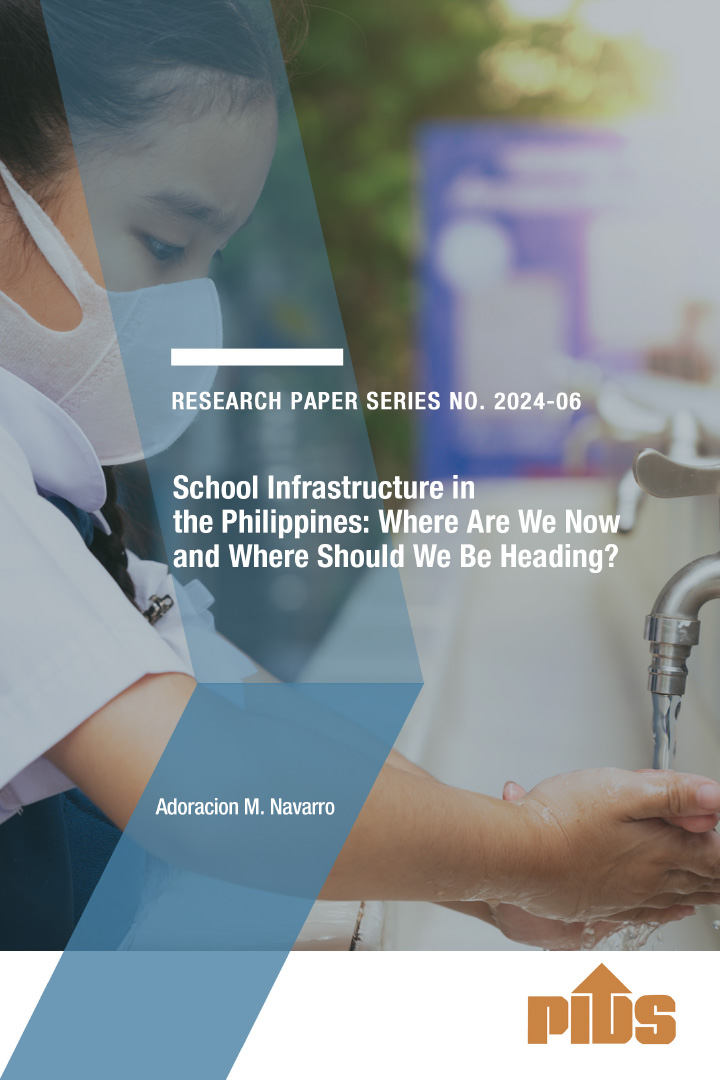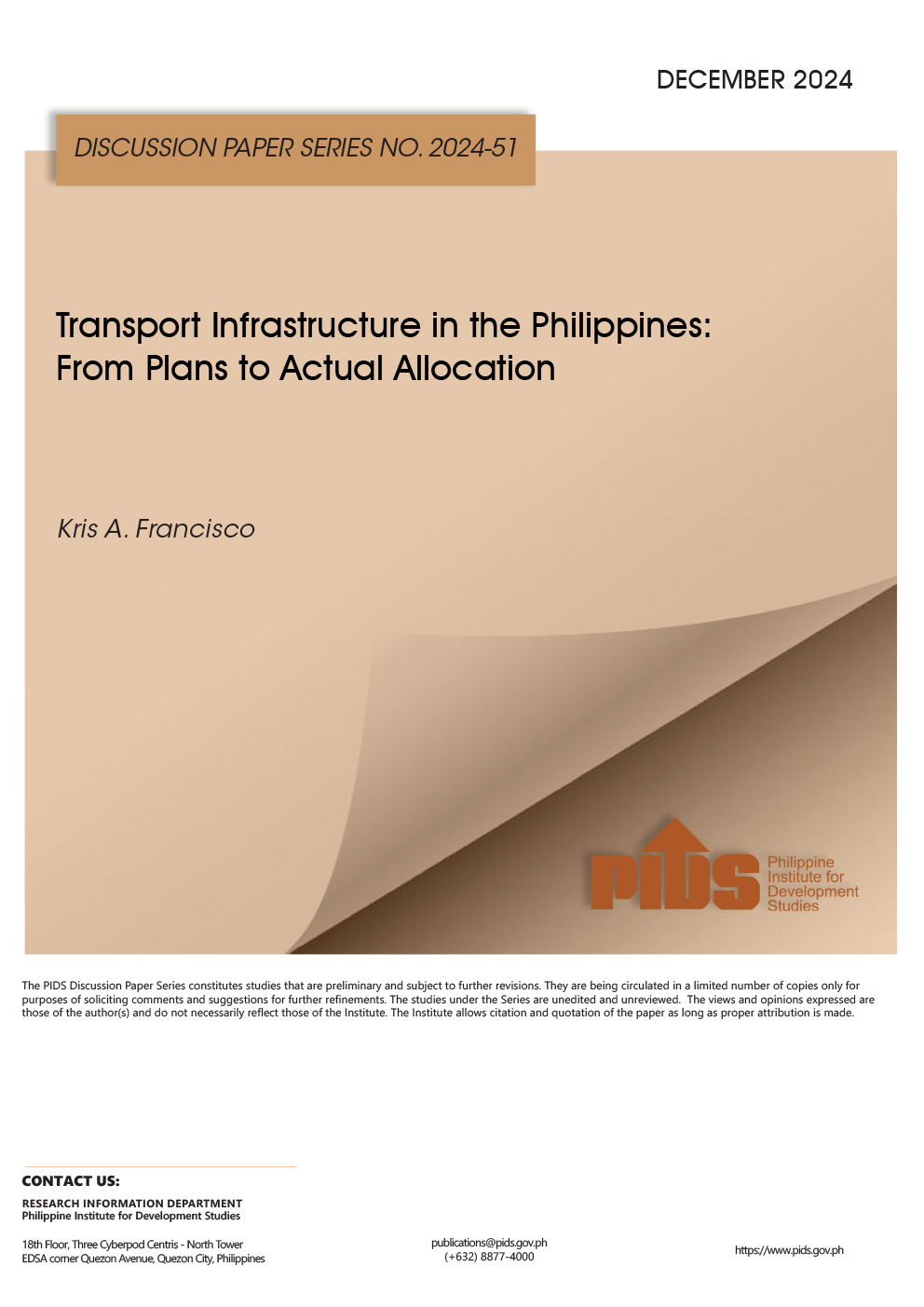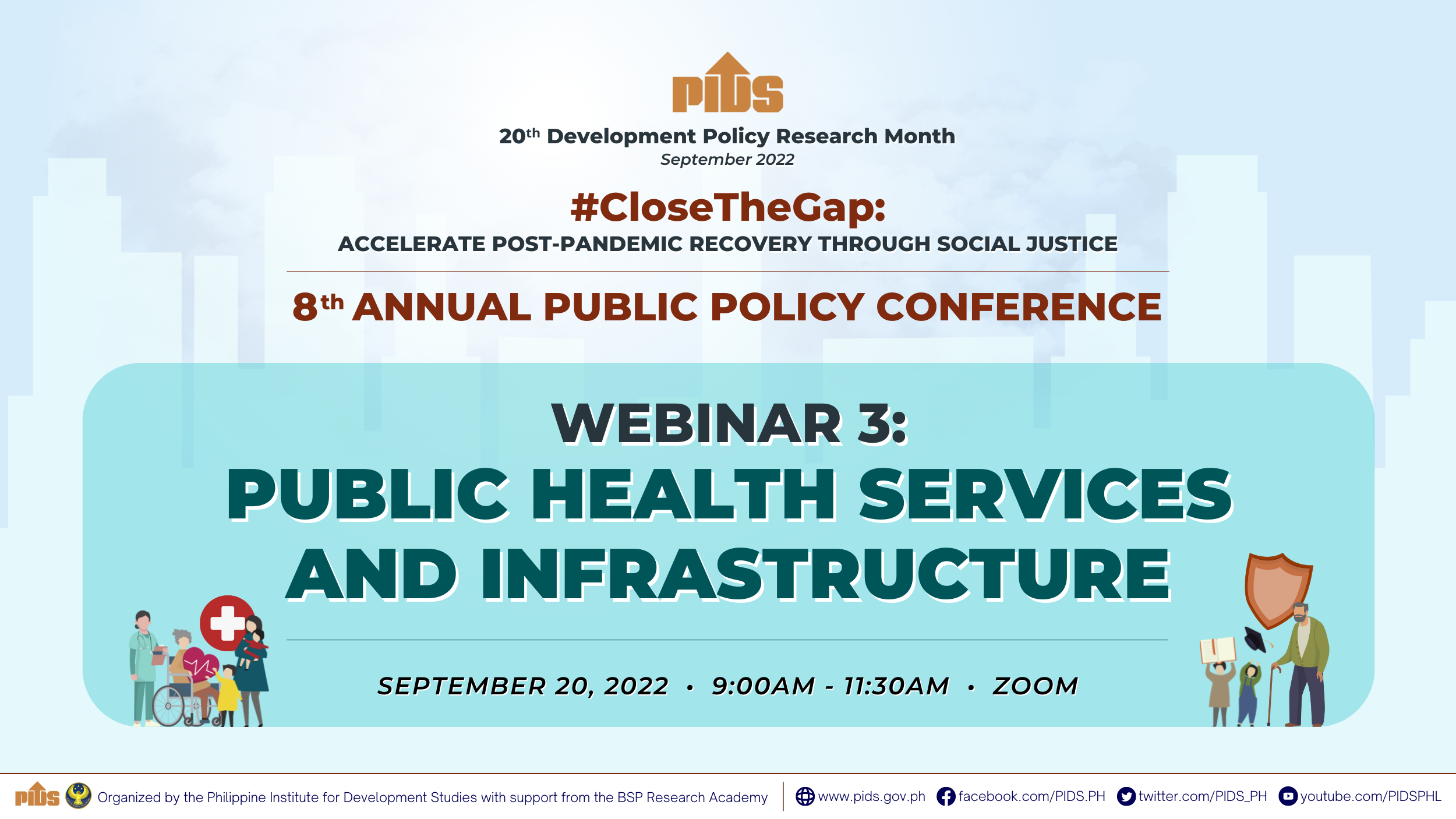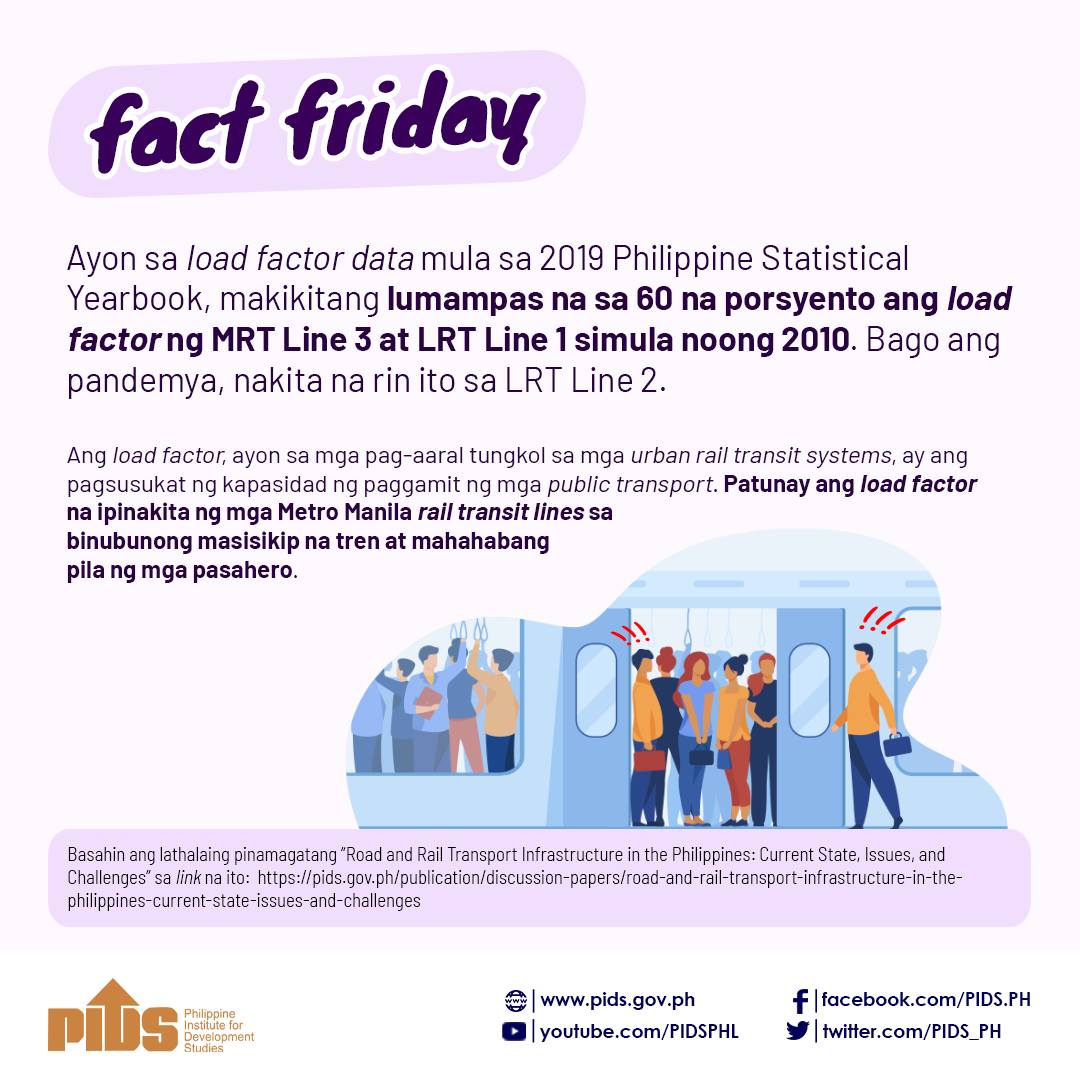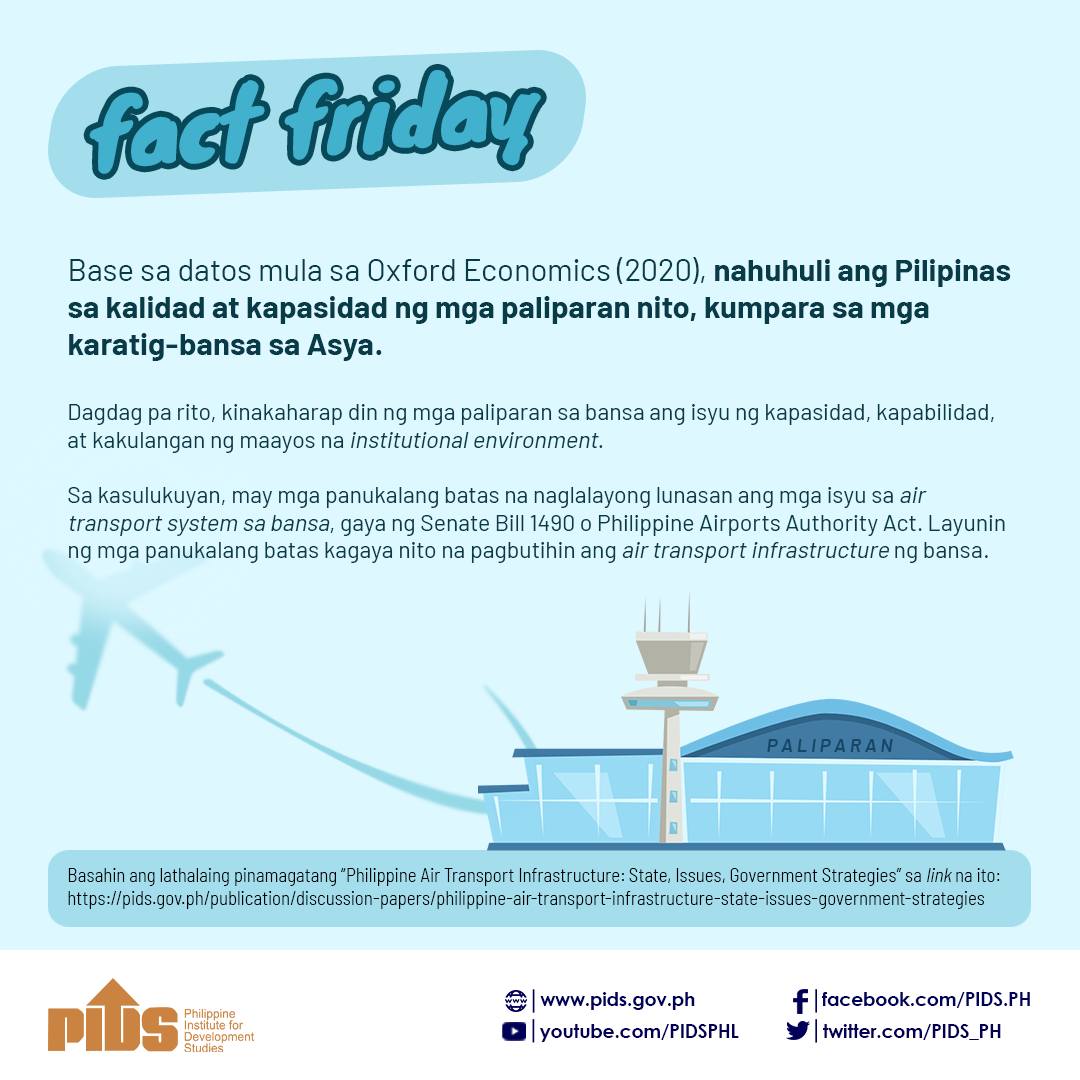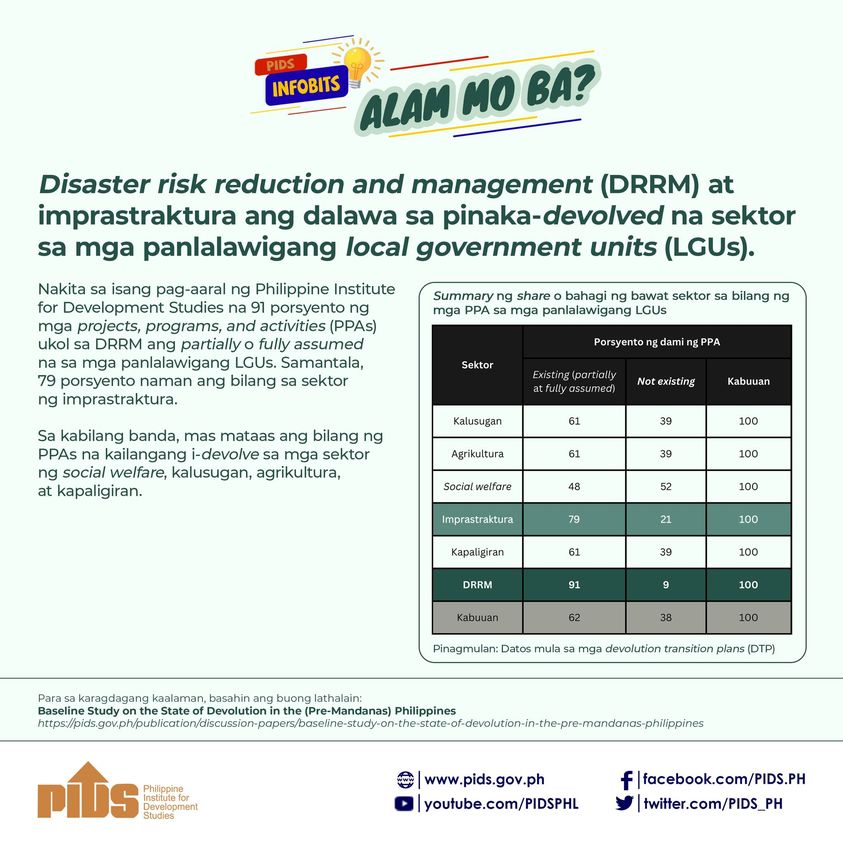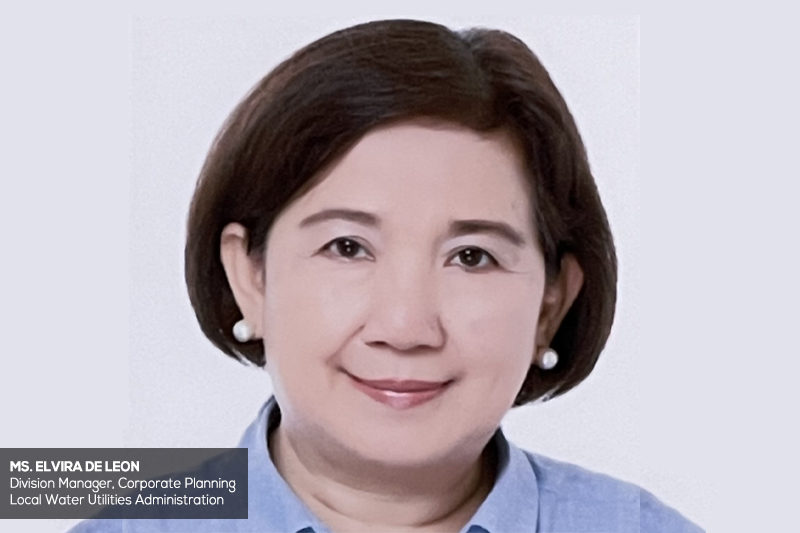
The country needs a lead agency that will oversee the water sector, particularly its overall planning, programming, and policy formulation.
This was one of the key points raised by Elvira de Leon, Local Water Utilities Administration Division Manager for Corporate Planning, during a webinar recently organized by the Philippine Institute for Development Studies (PIDS).
De Leon, a discussant at the webinar, mentioned this after a PIDS study titled “The Philippine Local Government Water Sector” showed the country’s water sector in a fragmented state “primarily due to ambiguous and overlapping institutional mandates”. The study was presented by authors PIDS Research Fellow Charlotte Justine Diokno-Sicat and University of the Philippines Assistant Professor Lawrence Velasco in the same webinar.
“[The] identified weaknesses in institutional mandates both cause and exacerbate the absence of consistently and regularly reported data which pose challenges [to] monitoring and [evaluating] water service providers as basis for sector reforms,” the authors explained. They pointed out that at present, there is “no single water-related planning agency that keeps track of [the sector’s] progress and investment”.
The lack of impact assessments on the country’s water service provision has resulted in fragmented policies, programs, and interventions, they said.
However, Sicat clarified that they are “not proposing or pushing for any particular central coordinating body”.
She said that keeping track of the water sector's targets, investments, and funding needs could be done through a “strengthened mandate of existing water bodies or creation of a committee”.
Meanwhile, de Leon noted that “if the current set-up in the water supply sector remains, the risk of not attaining the 2030 targets is very high.” The Sustainable Development Goal 6’s target is “to ensure availability and sustainable management of water and sanitation for all”.
“There is a pressing need to legislate the bill that seeks to create an apex body that will oversee the overall planning, programming, policy formulation, and management of the water resources sector and a water regulatory body to address the sector’s fragmented, poorly enforced, and low coverage regulatory regime,” De Leon explained.
She mentioned that in November 2020, the House Committee on Appropriations approved the substitute bill that consolidated other bills seeking the creation of the Department of Water Resources (DWR). Under the bill, the DWR will be responsible for water resources planning, policy formulation, and management of the ownership, appropriation, utilization, exploitation, development, sustainability, and protection of water resources in the Philippines, except fisheries or aquaculture.
You may watch the webinar
at https://www.facebook.com/PIDS.PH/videos/279221600515684. For more videos of PIDS events, go to https://www.pids.gov.ph/videos.
This was one of the key points raised by Elvira de Leon, Local Water Utilities Administration Division Manager for Corporate Planning, during a webinar recently organized by the Philippine Institute for Development Studies (PIDS).
De Leon, a discussant at the webinar, mentioned this after a PIDS study titled “The Philippine Local Government Water Sector” showed the country’s water sector in a fragmented state “primarily due to ambiguous and overlapping institutional mandates”. The study was presented by authors PIDS Research Fellow Charlotte Justine Diokno-Sicat and University of the Philippines Assistant Professor Lawrence Velasco in the same webinar.
“[The] identified weaknesses in institutional mandates both cause and exacerbate the absence of consistently and regularly reported data which pose challenges [to] monitoring and [evaluating] water service providers as basis for sector reforms,” the authors explained. They pointed out that at present, there is “no single water-related planning agency that keeps track of [the sector’s] progress and investment”.
The lack of impact assessments on the country’s water service provision has resulted in fragmented policies, programs, and interventions, they said.
However, Sicat clarified that they are “not proposing or pushing for any particular central coordinating body”.
She said that keeping track of the water sector's targets, investments, and funding needs could be done through a “strengthened mandate of existing water bodies or creation of a committee”.
Meanwhile, de Leon noted that “if the current set-up in the water supply sector remains, the risk of not attaining the 2030 targets is very high.” The Sustainable Development Goal 6’s target is “to ensure availability and sustainable management of water and sanitation for all”.
“There is a pressing need to legislate the bill that seeks to create an apex body that will oversee the overall planning, programming, policy formulation, and management of the water resources sector and a water regulatory body to address the sector’s fragmented, poorly enforced, and low coverage regulatory regime,” De Leon explained.
She mentioned that in November 2020, the House Committee on Appropriations approved the substitute bill that consolidated other bills seeking the creation of the Department of Water Resources (DWR). Under the bill, the DWR will be responsible for water resources planning, policy formulation, and management of the ownership, appropriation, utilization, exploitation, development, sustainability, and protection of water resources in the Philippines, except fisheries or aquaculture.
You may watch the webinar
at https://www.facebook.com/PIDS.PH/videos/279221600515684. For more videos of PIDS events, go to https://www.pids.gov.ph/videos.

